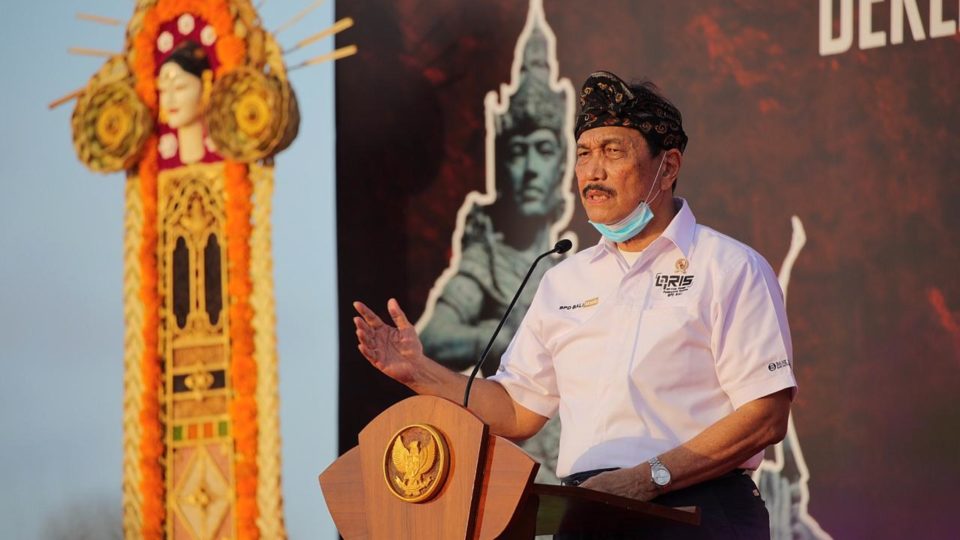Coordinating Minister for Maritime Affairs and Investment Luhut Pandjaitan has urged other regional governments to take initiative and follow destinations such as Bali in restarting tourism activities, suggesting that the island’s reopening to domestic tourism has yielded “joyful results.”
Bali started welcoming domestic tourists at the end of last month amid the COVID-19 pandemic, a move officials deemed as necessary for the province’s economic recovery, which has been severely impacted by the decline in tourism.
During a webinar yesterday, Luhut noted that coronavirus cases in Bali have been declining, while recoveries have increased.
“This is something we need to take example of, I was previously worried that by opening for tourists Bali will see an increase [in positive cases]. But that didn’t happen,” Luhut said.
According to Bali Tourism Agency Head I Putu Astawa, around 2,000 people have visited the island daily by plane since July 31. Meanwhile, the daily count has hovered between 30 and 59 cases since then. As of yesterday, Bali has recorded 3,892 COVID-19 cases, including 3,388 recoveries.
While some may find that reassuring, it’s only been two weeks since Bali’s reopening to domestic tourism, and it must be noted Indonesia has one of the lowest testing rates in the world. To date, less than a million people – 985,594, according to Aug. 12 data from the Health Ministry – have so far been tested using the polymerase chain reaction (PCR) method, or swab test, in a country of more than 260 million.
Luhut also said that Bali, along with Banyuwangi, East Java, have so far shown “joyful results.”
“It’s obvious in Banyuwangi that the tourists have been very disciplined, same with Bali, and their economies are now restarting,” Luhut said, adding that the ongoing global travel halt offers a potential of more than US$15 billion for domestic tourism.
“All of our initiatives and activities [related to tourism] must be restarted again while prioritizing public health. Don’t stop reminding obedient use of masks, hand-washing and social distancing, especially in heavily populated areas,” he continued.




